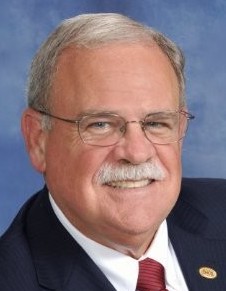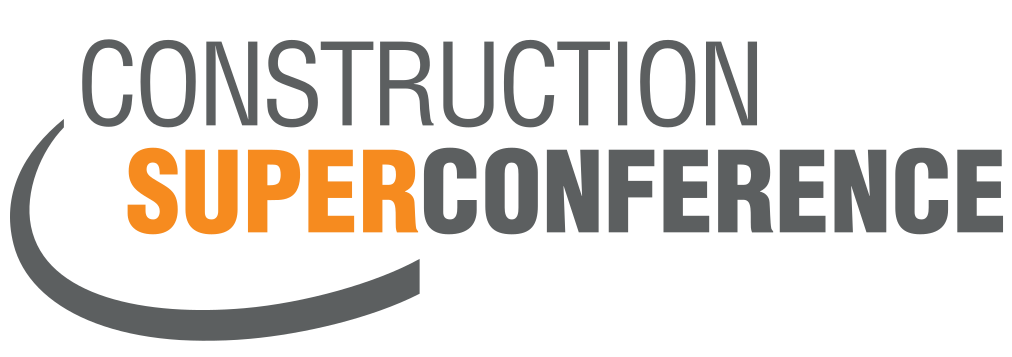ATLANTA – It’s been a full year since Construction Super Conference met at the Terranea Resort in Palos Verdes, Calif. Little did we know what would transpire between then and now. Just this week, the first Americans (outside of clinical trials) received vaccinations for COVID-19.
In addition to the global pandemic, political strife of all kinds dominated headlines. Elections, debate about police reform, and a mass use of meeting technology transformed the day-to-day workings of construction law attorneys, and everyone else for that matter.
What will 2021 look like? We asked Third Thursday contributors to give us a glimpse into the crystal ball on a few salient topics, particularly remote proceedings and possible regulatory conditions under a Biden administration.
How will a Biden administration shape rules and regulations?

“We can look back to the Obama administration’s rules and regulations, and the most amusing thing about that administration was the ‘shovel ready projects.’ None of those projects could get off the ground because of all the regulations. My expectation is that the Biden administration will be heavy handed when it comes to not just project labor agreements, but other agreements that govern the construction industry, such as OSHA. Rules regarding minority participation in construction projects and disadvantaged business entities might be expanded and more strictly enforced.” — Mike Heitman, Nason Yeager, Palm Beach Gardens, Fla.
“If the Biden administration is smart, it will leave alone those rules and regulations put in place by the prior administration that have led to vigorous economic growth. If the Biden administration is instead intent to ‘set its own course’ and to thereby change many of these same rules and regulations out of spite or to curry political favor, then it will ‘kill the golden goose.’” — Wayne H. Kalayjian, director, Secretariat, El Segundo, Calif.

“There can be no doubt that a Biden Administration is going to expand the regulation of certain businesses. One segment within the Democrat Party has been demanding the appointment of high level appointees who will commit to that expansion, particularly in regard to environmental considerations, executive compensation, and corporate Board and leadership diversity. While the President-Elect seems to be trying to stay middle of the road, not all would agree he has been successful.” — Robert S. Peckar, founding partner, Peckar & Abramson, P.C., New York, N.Y.
“The unraveling of the greatest deregulatory period in the modern era will occur.” — Brian Perlberg, senior counsel, Construction Law, Associated General Contractors (AGC) of America, Arlington, Va.
“For the most part, rules and regulations will stay about the same under a Biden administration because most projects are governed by state law. As it relates to federal projects, I expect the Biden administration to continue the Trump administration’s policy of ‘Buy America’ and to protect certain domestic industries like steel from unfair foreign competition.” — Edward Seglias and Michael McKenna, Cohen Seglias Pallas Greenhall & Furman PC, Philadelphia
“While we wish the incoming Biden administration would continue to pursue the kind of regulatory reforms that helped support economic growth prior to the coronavirus, we worry that the new president will be under intense pressure from progressive groups to impose new regulatory measures. These measures will likely do little to protect the environment or workers, but a lot to stifle job creation and economic growth.” — Brian Turmail, vice president, Public Affairs & Strategic Initiatives, AGC of America, Arlington, Va.

“I believe the Biden administration will move forward to fulfill their commitment to stop all border wall construction along the U.S. / Mexico border. To implement this commitment they may have the Department of Homeland Security and the Army Corps of Engineers promptly issue suspension of work directives to all contractors and then follow up with termination for convenience directives. Such termination for convenience directives will involve US$15 billion in construction contracts already underway. And, this approach will impact 15 separate contractors. Each contractor will be required to prepare and submit a termination for convenience claim for work done to date; stored material that cannot be returned to the fabricator plus restock charges for materials that can be returned; security costs to work completed; and markup costs including profit on the foregoing claim costs.
“As termination for convenience claims are not common, contractors will have to scramble to put their claims together and government contracting office will have to sharpen up their skills on analyzing such claims. I anticipate that many of these claims will end up in the Armed Forces Board of Contract Appeals for those contracts run by the Corps of Engineers and the Civilian Board of Contract Appeals for those contracts run by the Department of Homeland Security. Construction litigation attorneys and claims consultants can most likely look forward to a good deal of work over the next few years.” — James G. Zack, Jr., principal, James Zack Consulting, LLC, Johnstown, Colo.
Will Zoom Meetings Persist Post-Pandemic?

“Now that we have been forced to use it, we know that Zoom works. While the loss of face-to-face interaction may have some effect, other than in the formative stages of a business relationship that is really minimal. In addition, Zoom eliminates the need to travel, saving money and making the process far more efficient. Irrespective of the end of the pandemic, I believe Zoom meetings have become the new normal…Now that we know it works, and the Judiciary has a degree of comfort with it, remote hearings will play a larger role, at least for routine proceedings.” — Frederick F. Butters, PLLC, attorney at law, Southfield, Mich.
“Covid has accelerated changes in communication technology that were already taking place, and has removed the stigma of remote working. These technologies will continue to be enhanced and to more closely replicate an ‘in-office’ experience. While some workers will return to their offices in 2021 because they enjoy it, the rest will continue to work remotely, and why not? No commute. Less wear and tear. More sleep. More personal time.” — Wayne H. Kalayjian, director, Secretariat, El Segundo, Calif.
“I have little doubt that Zoom meetings will remain a commonly used vehicle for meetings that do not require in-person attendance—particularly when expensive travel can be avoided. However, I also have little doubt that once people are comfortable being in a room together (post-vaccine), many in-person meetings will resume. Face-to-face meetings ‘in the flesh’ may still be preferred in many situations where the ‘personal touch’ makes a big difference. I know that I look forward to meeting clients in-person as soon as possible!” — Robert S. Peckar, founding partner, Peckar & Abramson, P.C., New York, N.Y.

“More work than before will be done remotely, but activities that require personal detail, collaboration, and mentoring will return to in-person activities. Everyone will reevaluate previous telework policies and make them more flexible, but most will require an in-person element.” —Brian Perlberg, senior counsel, Construction Law, Associated General Contractors (AGC) of America, Arlington, Va.
“Zoom meetings are here to stay, for better or worse, because they save time and money on travel. On the other hand, Zoom meetings will also disconnect us in ways that are not yet completely understood. That probability portends many unintended consequences.” — Edward Seglias and Michael McKenna, Cohen Seglias Pallas Greenhall & Furman PC, Philadelphia
“It’s hard to see how the future will not include far more video meetings than what we experienced prior to the coronavirus. In many ways, the coronavirus has worked to accelerate trends already underway. One of the best examples of that is the widespread adoption of video conferencing. That genie is out of the bottle for good.” — Brian Turmail, vice president, Public Affairs & Strategic Initiatives, AGC of America, Arlington, Va.
What are your predictions for the future of construction law?
“There will continue to be a dearth of reported case law in the area of construction. This may cause some confusion with clear application of facts and law but overall knowledgeable construction lawyers will use their expertise and experience to resolve claims more efficiently. Emerging technology trends like using AI for contract reviews and data analytics for electronic discovery will help increase efficiencies.” — Brian Perlberg, senior counsel, Construction Law, Associated General Contractors (AGC) of America, Arlington, Va.

“Owners will continue to seek more efficient and timely ways to accelerate the design, construction and completion of projects. This process will theoretically save money but could create more financial risk for designers and contractors. But the designers and contractors that are best equipped to manage this type of construction environment can benefit in multiple ways.” — Edward Seglias and Michael McKenna, Cohen Seglias Pallas Greenhall & Furman PC, Philadelphia
“Especially given the lack of liability protection in place at the federal level, we expect to see an increase in the number of COVID-related litigation in the next six to 12 months.” — Brian Turmail, vice president, Public Affairs & Strategic Initiatives, Associated General Contractors (AGC) of America, Arlington, Va.
How common will remote court proceedings be in 2021?

“The wheels of justice move slowly for a reason. They are deliberate. They are procedural. And they often rely on face-to-face interactions, questions, and testimony. After all, our legal system is predicated on being able to face our accusers. For this reason, certain types of important proceedings will always require live legal proceedings. But Covid has forced us to learn that many other and more routine proceedings can occur just as effectively (if not more so) via remote communications—and at reduced cost for all parties.” — Wayne H. Kalayjian, director, Secretariat, El Segundo, Calif.
“Very common; Even if a vaccine becomes available, in-person hearings seem unlikely for the first six months of 2021.” — Brian Perlberg, senior counsel, Construction Law, Associated General Contractors (AGC) of America, Arlington, Va.
“Remote court proceedings will wane as therapeutics continue to improve and a vaccine is widely distributed. Judges to whom I have spoken dislike remote proceedings and will schedule in-person hearings and trials once given the go ahead by government officials. — Edward Seglias and Michael McKenna, Cohen Seglias Pallas Greenhall & Furman PC, Philadelphia


